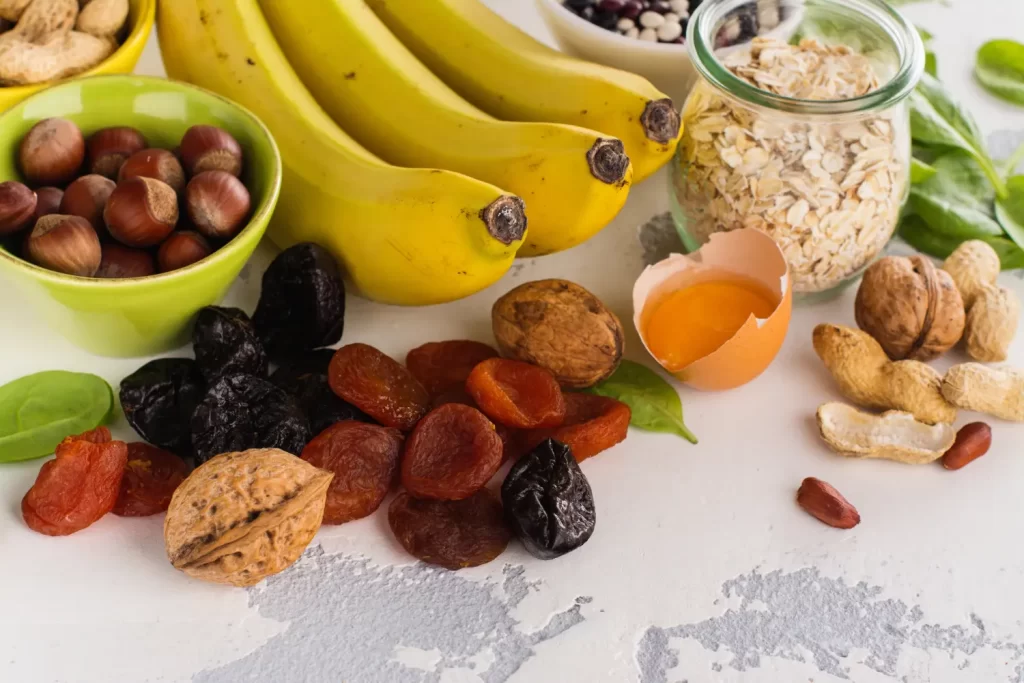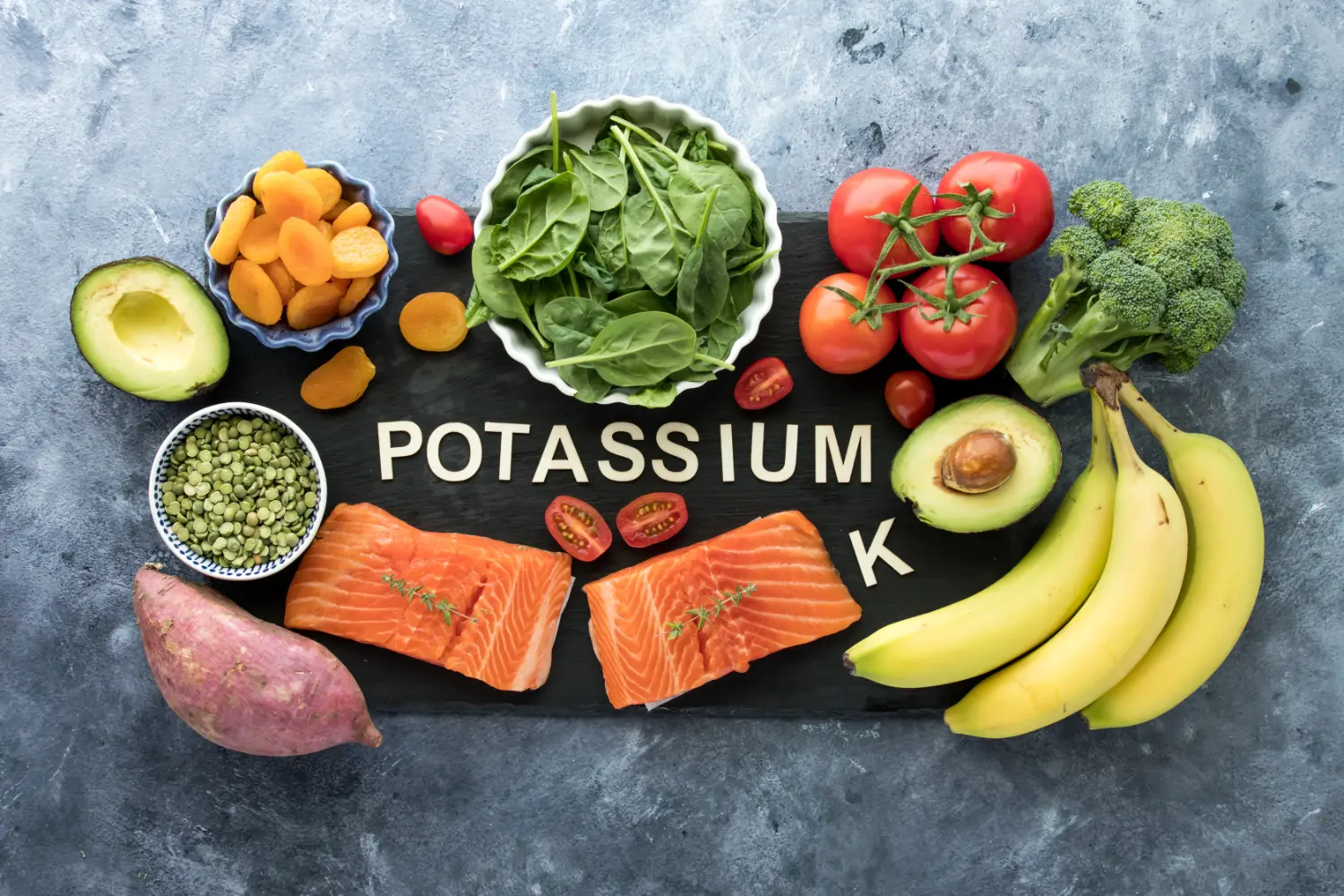
Menopause is a natural phase of life, but it often comes with uncomfortable symptoms like fatigue, mood swings, and increased health risks.
One of the most overlooked factors in menopause wellbeing is nutrition, and potassium plays a key role in supporting heart health, bone strength, and energy levels. Many women experience hormonal changes that affect their body’s ability to regulate minerals, making potassium intake more important than ever.
Menopause brings significant hormonal changes that can impact overall health, increasing the risk of high blood pressure, bone loss, and fatigue. As estrogen levels decline, the body’s ability to regulate key minerals—like calcium and potassium—becomes less efficient, making proper nutrition essential.
Potassium for menopause plays a crucial role in counteracting these changes. It helps regulate blood pressure, reduces bloating caused by fluid retention, and supports nerve and muscle function. Additionally, potassium is vital for maintaining a healthy heart and preventing osteoporosis, two common concerns for menopausal women.
Studies suggest that a potassium-rich diet may also help reduce mood swings and fatigue by supporting brain function and energy metabolism. Without enough potassium, women may experience increased muscle cramps, irritability, and weakness, making it even harder to manage menopause symptoms effectively.
Getting enough potassium during menopause can make a noticeable difference in overall wellbeing. Here’s how this essential mineral supports key aspects of health:
Menopausal women face an increased risk of high blood pressure and cardiovascular disease due to declining estrogen levels. Potassium helps relax blood vessels, reduce sodium retention, and lower blood pressure, reducing the risk of heart disease and stroke.
Osteoporosis is a major concern during menopause as the body loses calcium more rapidly. Potassium helps reduce calcium loss in urine, preserving bone density and lowering the risk of fractures. Women with higher potassium intake often have stronger bones and a lower risk of osteoporosis.
Fatigue, brain fog, and irritability are common menopause symptoms. Potassium plays a role in nerve function and muscle contractions, helping to regulate mood, prevent muscle weakness, and boost overall energy levels. Proper potassium levels may also support brain function and reduce menopause-related stress and anxiety.
Getting enough potassium from food is the safest and most effective way to support your body during menopause. Potassium for menopause can be found in a variety of nutrient-dense foods that help maintain heart health, bone strength, and energy levels. Here are some of the best sources:
The recommended daily intake of potassium for adult women is around 2,600 mg, but individual needs may vary. Including a variety of these potassium-rich foods in your meals can help you maintain optimal levels naturally.

While food is the best way to get potassium for menopause, some women may need supplements, especially if their diet lacks potassium-rich foods or if they have certain health conditions.
If your doctor recommends a potassium supplement, look for options with potassium citrate or potassium gluconate, which are well-absorbed. Always follow dosage guidelines to avoid excess intake.
However, in most cases, a balanced diet with potassium-rich foods provides all the potassium you need without the risks of supplementation.
While potassium for menopause is essential, it works best when balanced with other important nutrients. Maintaining the right ratios can improve heart health, bone strength, and overall wellbeing.
Too much sodium can cause water retention and high blood pressure, common concerns during menopause. Potassium helps counteract sodium’s effects, reducing bloating and supporting heart function.
Tip: Reduce processed foods (high in sodium) and increase whole foods rich in potassium.
Magnesium helps enhance potassium absorption and supports muscle relaxation. A deficiency in magnesium can worsen menopause symptoms like cramps, anxiety, and fatigue.
Tip: Pair potassium-rich foods with magnesium sources like nuts, seeds, and dark chocolate.
Calcium is vital for bone density, but it needs potassium to prevent calcium loss in urine. Women with higher potassium intake tend to have stronger bones and lower osteoporosis risk.
Tip: Eat leafy greens, dairy, and almonds to get a balanced mix of potassium and calcium.
A well-rounded diet that includes these key nutrients will maximize the benefits of potassium for menopause.
Managing menopause symptoms through nutrition is one of the most effective ways to support long-term health. Potassium for menopause plays a crucial role in maintaining heart health, bone strength, and energy levels, helping to counteract the effects of hormonal changes.
Key Takeaways:
By focusing on a potassium-rich diet, you can reduce menopause symptoms naturally and support overall health. If you’re considering supplements, always consult your doctor to ensure safe and effective use.
Want to learn more about how other essential nutrients can support menopause? Check out our guide on the best vitamins and minerals for menopause health!
Related Articles










* These statements have not been evaluated by the Food and Drug Administration. This product is not intended to diagnose, treat, cure or prevent any disease.